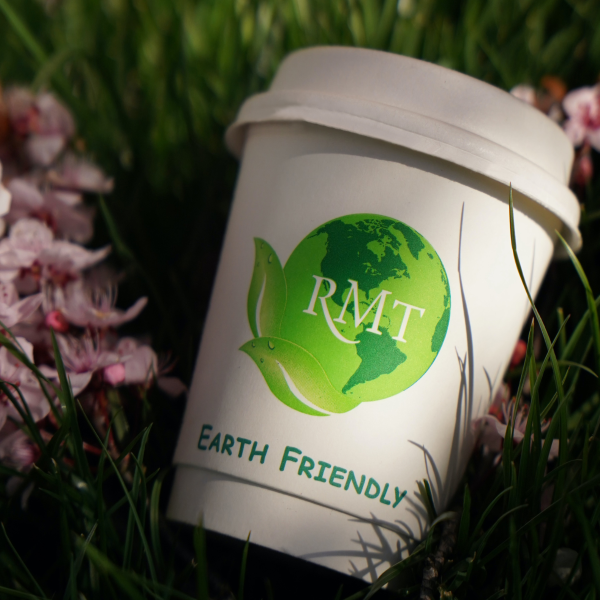From sugar cane packaging to polycarbonate glass: RMT Global talks eco-friendly products
Share
RMT Global provides on-board comfort care and service items for the travel industry, with a particular focus on eco-friendly products. We caught up with President and CEO Richard Tuttle at IFSA/APEX EXPO, to talk about in cabin sustainability, and more.
Q – Talk to us about what your focus is for this year’s IFSA / APEX EXPO?

Richard Tuttle (RT) – I’ve been in the industry for a long time, since 1984. One thing I’ve learned…if you’re going to be successful, it’s all about relationships. If you don’t have a relationship, you’re not going anywhere, with your business sales or anything else. And if you don’t show up at the shows and stay out in front of customers with products that you’re offering and the message you’re trying to get across to your customers, you might as well not have a company.
Q – You have a lot of competitors in this space, what would you say sets you apart?
RT – There are a lot of good competitors here that I’ve known for many, many years. They are good friends. We all have good quality products or else we wouldn’t be here, we wouldn’t be in business.
But the things that set us apart is our customer service, serviceability. I pride ourselves on the quality of the product. On deliverability, we probably have a 98% fill rate. Our customers can’t run out at critical times, so we plan for that and bridge a gap.
These are little things that really set us apart. Our service ability. Our quality control, making sure that products will be manufactured, to our specifications.
Q – Your stand has a big sign that says “sustainability around the globe”, tell us more.
RT – That’s very important to all of us. It’s paramount to all the suppliers here, not only the equipment suppliers, everybody wants to make sure that whatever they do, it’s done to the best of their ability to minimise the impact that we all have on the environment going forward.
I’m sure our competition will say the same thing, that the focus is on sustainability. Or how can we make sure that the life of that product is managed in a responsible way, when it is taken out of service or repurposed into something else. That’s important. So we try very hard.
There are some items where we can do that. Other items like a thermos have to maintain heat for 24 hours when it comes to serving soups. And here there is less you can do, but stainless steel can be recycled.
There’s all kinds of things that we are working on, to show our cause to customers, to show the world and their travelling public that we are doing our best to clean up things.
Q – One of the materials you are working with is sugar cane as a packaging material. Talk to us more about this.
RT – They take the plant fibre, turn it into pulp. And you take pressure and heat and it is formed into similar packaging that you see here. That’s it simplified, but that’s basically it.
But a point I want to make is that some of the things you see here are biodegradable. Plastic free. Other things you see here may have a coat of plastic.
Some products can be composted and be biodegradable. But you just need to be aware, if I come back to you and say, ‘hey this product is biodegradable’. Well, that may be true, but it’s only half true, because the product may have to go back to an industrial composting facility.
The sugar cane dish, you can throw it out in your backyard, and after a period of time, say six months, it bio-degrades and disintegrates.
Other products need to go to a commercial facility, be worked in for six months, then it’s biodegradable. So there’s a big difference there.
Q – Give us some examples of the work you are doing for airlines
RT – We do polycarbonate glass for United Airlines, which is a very durable, high quality plastic that replaces glass. It can be recycled. But it won’t break, while glass breaks. I put it in my dishwasher, six months on, probably 600-700 washes, it won’t yellow, it won’t stain, it won’t scratch.
Q – That’s interesting, and let’s finish by talking about durability. How do you ensure that your products withstand industrial level cleaning and laundry processes?
RT – Good question. There’s a number of things you can do. You can tighten up the weave to make it tighter. Of course, that adds weight to the product, or cost. However, it’s a balance between – can you use this thing 100 times or can use it 30 times? Well, every time you wash it, that cost goes down as you wash it.
Find out more about RMT Global Products by visiting the website.


